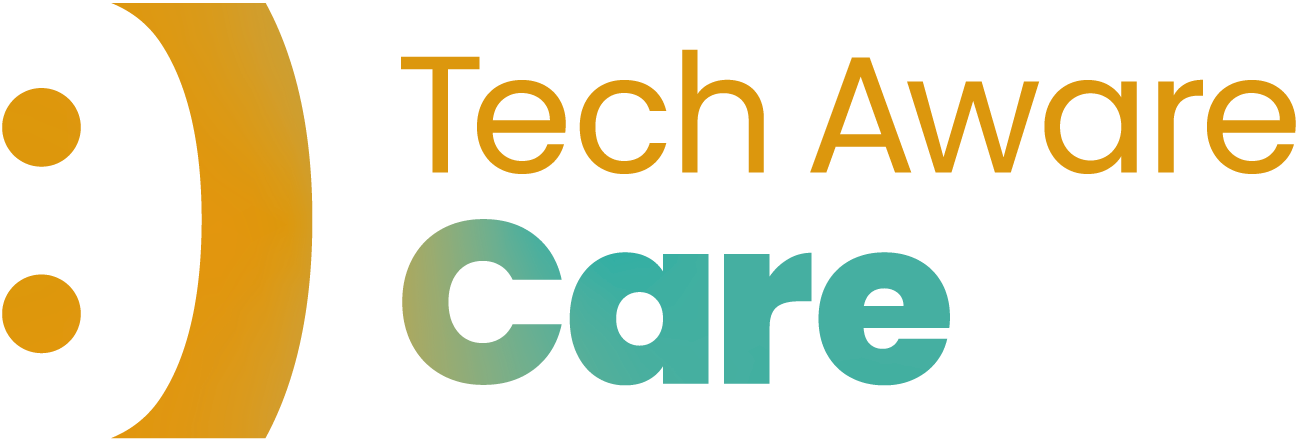Autism
THERAPY 2.0
Autism Therapy
Welcome. Take a sigh of relief. You've found best-in-class neurodiverse-affirming therapy to heal, grow and thrive.
-
Welcome
At Therapy 2.0, our compassionate, neurodiverse-affirming therapy is grounded by science... and built for you.
Simply stated? Your needs are different from everyone else's. We understand that, and we are here for you. We pledge to see the real, true you. In therapy, you won't have to mask. You won't have to hide your special interests, "stims", or sensory needs. You'll be accepted for you... every part of you. Our therapist-founder is autistic herself, so she gets it.
We recognize that every person's lived experience of autism is unique. We live by the common phrase, 'if you know one person with autism, you know one person with autism'!
At Therapy 2.0, our virtual therapy is available for everyone 16+ in Pennsylvania.
-
Therapy 2.0 Modalities
- Psychodynamic Therapy
- ACT (Acceptance & Commitment Therapy)
- Solution Focused Therapy
- DBT skills
-
Therapy 2.0 Approach
- Tech-Aware Care
- Trauma Informed Therapy
- Non-pathologizing, non-shaming
- Sex-positive
- Neurodiverse-affirming
Online therapy is available in Philadelphia, Pittsburgh and across Pennsylvania.
Jump to....
THERAPY 2.0: AUTISM
Social Support
Do you ever feel shame, embarrassment, confusion or burn-out in social situations?
If so, you're not alone. Reading social cues and participating in neurotypical conversation styles can be quite stressful for autistic people.
'The Double Empathy Problem' offers some insight. It explains that neurodiverse people are expected to fit into the neurotypical world, while the reverse is rarely true. Many autistic individuals bridge this gap by masking in order to appear “typical.” This may not be fair, but it may explain a great deal.
You may 'mask' to fit in. In an ideal world, everyone would choose when or how they mask, but that isn't always an option. Some people stop masking in adulthood, while others find their masking needs may shift by time, space or community. Together, in therapy, we can explore why, when and how you mask, as well as the exhaustion, burn-out or frustration that often accompany masking.
If you'd like to dig deep into all of your social experiences associated with autism, reach out today. We can't wait to hear from you.
Click here to schedule your free 15 minute consult.
THERAPY 2.0: AUTISM
Sensory Support
Do you feel like your sensory processing is supercharged or undercharged?
Anything that's seen, heard, smelled, touched and tasted can be 'super-experienced', or alternately, under-experienced. If this is a part of your autistic profile, it may lead to pain, frustration, annoyance, discomfort (and more). This may be called Sensory Processing Disorder, which some specialists argue is a separate diagnosis.
Importantly, as an autistic person, your sensory responses to stimuli are largely hardwired. Therefore, the way you respond to stimuli cannot be 're-wired' with extinction or tolerance exercises. Consequently, we don't ask our clients to ignore, suppress or 'get over' the responses they have to sensory stimuli. Instead, we prioritize self-soothing and calming support. Together we'll develop a game plan to shift what's realistically possible within your various environment(s).
Ready to get started? Together we'll use science-backed tools, skills and strategies to help you live better and feel better.
Click here to schedule your free 15 minute consult.
THERAPY 2.0: AUTISM
Emotional Regulation Support
In a world built for neurotypical people, does it feel extra-hard to emotionally regulate sometimes?
It may be difficult because the rules of the world can be confusing, sensory needs differ, and emotional regulation is difficult, period.
For autistic people, the suppression of pain, discomfort, confusion or annoyance may be an already-learned trait. This can have downstream effects, like feeling easily overwhelmed, distressed or emotionally activated. It may also lead to struggles with naming or feeling emotions, which may already be an innate struggle!
If you'd like to get support with emotional regulation, please set up a free 15 minute consultation. We're excited to hear from you.
Click here to schedule your free 15 minute consult.
THERAPY 2.0: AUTISM
Environment Support
For autistic people, developing skills, tools, and strategies to navigate the demands of home, school, work, and social environments can be incredibly helpful.
Research shows that building self-awareness around sensory needs—and learning to recognize personal calm signals and danger signals—can have a powerful positive impact. Developing flexibility can also support well-being. Together in therapy, we can support your ability to respond as needed in all of your different environments.
Ready to get started?
Click here to schedule your free 15 minute consult.
THERAPY 2.0: AUTISM
Nervous System Regulation
Do you frequently feel stressed, on-edge, confused or upset? Take a sigh of relief. You're in the right place.
For autistic people, the world may elicit feelings of stress, anxiety and discomfort. Feeling this way is quite common. Stimming (or repetitive self-stimulating behavior) may help some people, but the exact reason for stimming behavior is different for everyone.
Many autistic people realize they're frequently in fight-or-flight mode, and our therapy supports nervous system regulation. With therapy, it's possible to feel more calm and centered while developing skills for (healthy) variation and tolerance. If that's something that seems helpful, feel free to reach out.
Click here to schedule your free 15 minute consult.
Is your tech use impactful?
At Therapy 2.0, we're pioneer providers of therapy and tools for better tech-era living. Deep dive into our science-backed, specialist expertise:
Ready for next steps?
Schedule your free 15 minute consultation or your first appointment.
Autism
THERAPY 2.0
Autism Therapy
Therapy 2.0 Modalities:
- Psychodynamic Therapy
- ACT (Acceptance & Commitment Therapy)
- DBT skills
- Solution Focused Therapy
Therapy 2.0's Approach:
- Tech-Aware Care
- Trauma Informed Therapy
- Non-pathologizing, non-shaming
- Sex-positive
- Neurodiverse-affirming
Online therapy is available in Philadelphia, Pittsburgh and across Pennsylvania.
Welcome. Take a sigh of relief. You've found best-in-class neurodiverse-affirming therapy to heal, grow and thrive.
At Therapy 2.0, our compassionate, neurodiverse-affirming therapy is grounded by science... and built for you.
Simply stated? Your needs are different from everyone else's. We understand that, and we are here for you. We pledge to see the real, true you. In therapy, you won't have to mask. You won't have to hide your special interests, "stims", or sensory needs. You'll be accepted for you... every part of you. Our therapist-founder is autistic herself, so she gets it.
We recognize that every person's lived experience of autism is unique. We live by the common phrase, 'if
you know one person with autism, you know one person with autism'!
At Therapy 2.0, our virtual therapy is available for everyone 16+ in Pennsylvania.
Social Support for Autism
Do you ever feel shame, embarrassment, confusion or burn-out in social situations? If so, you're not alone. Reading social cues and participating in neurotypical conversation styles can be quite stressful for autistic people.
'The Double Empathy Problem' offers some insight. It explains that neurodiverse people are expected to fit into the neurotypical world, while the reverse is rarely true. Many autistic individuals bridge this gap by masking in order to appear “typical.” This may not be fair, but it may explain a great deal.
You may 'mask' to fit in. In an ideal world, everyone would choose when or how they mask, but that isn't always an option. Some people stop masking in adulthood, while others find their masking needs may shift by time, space or community. Together, in therapy, we can explore why, when and how you mask, as well as the exhaustion, burn-out or frustration that often accompany masking.
If you'd like to dig deep into all of your social experiences associated with autism, reach out today. We can't wait to hear from you.
Sensory Support for Autism
Do you feel like your sensory processing is supercharged or undercharged?
Anything that's seen, heard, smelled, touched and tasted can be 'super-experienced', or alternately, under-experienced. If this is a part of your autistic profile, it may lead to pain, frustration, annoyance, discomfort (and more). This may be called Sensory Processing Disorder, which some specialists argue is a separate diagnosis.
Importantly, as an autistic person, your sensory responses to stimuli are largely hardwired. Therefore, the way you respond to stimuli cannot be 're-wired' with extinction or tolerance exercises. Consequently, we don't ask our clients to ignore, suppress or 'get over' the responses they have to sensory stimuli. Instead, we prioritize self-soothing and calming support. Together we'll develop a game plan to shift what's realistically possible within your various environment(s).
Ready to get started? Together we'll use science-backed tools, skills and strategies to help you live better and feel better.
Emotional Regulation Support for Autism
In a world built for neurotypical people, does it feel extra-hard to emotionally regulate sometimes?
It may be difficult because the rules of the world can be confusing, sensory needs differ, and emotional regulation is difficult, period.
For autistic people, the suppression of pain, discomfort, confusion or annoyance may be an already-learned trait. This can have downstream effects, like feeling easily overwhelmed, distressed or emotionally activated. It may also lead to struggles with naming or feeling emotions, which may already be an innate struggle!
If you'd like to get support with emotional regulation, please set up a free 15 minute consultation. We're excited to hear from you.
Environment Support for Autism
For autistic people, developing skills, tools, and strategies to navigate the demands of home, school, work, and social environments can be incredibly helpful.
Research shows that building self-awareness around sensory needs—and learning to recognize personal calm signals and danger signals—can have a powerful positive impact. Developing flexibility can also support well-being. Together in therapy, we can support your ability to respond as needed in all of your different environments.
Ready to get started?
Autism & Nervous System Regulation
Do you frequently feel stressed, on-edge, confused or upset? Take a sigh of relief. You're in the right place.
For autistic people, the world may elicit feelings of stress, anxiety and discomfort. Feeling this way is quite common. Stimming (or repetitive self-stimulating behavior) may help some people, but the exact reason for stimming behavior is different for everyone.
Many autistic people realize they're frequently in fight-or-flight mode, and our therapy supports nervous system regulation. With therapy, it's possible to feel more calm and centered while developing skills for (healthy) variation and tolerance. If that's something that seems helpful, feel free to reach out.
Ready to schedule? We're here for you.
Is your tech use impactful?
At Therapy 2.0, we're pioneer providers of therapy and tools for better tech-era living. Deep dive into our science-backed, specialist expertise:
Ready for next steps?
Schedule your free 15 minute consultation or your first appointment.




